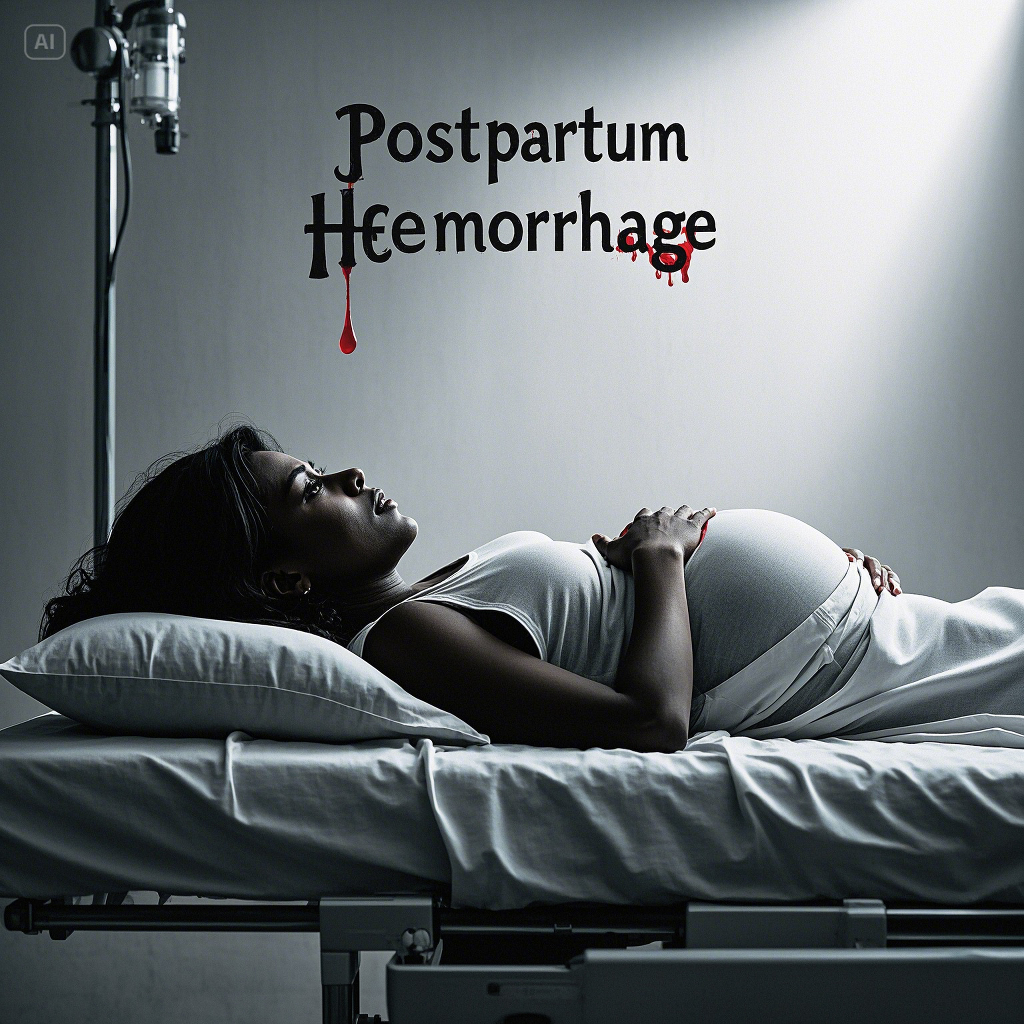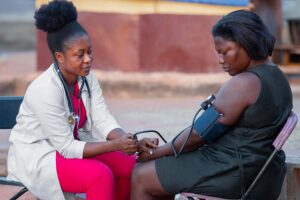
Postpartum hemorrhage (PPH) is a life-threatening condition characterized by excessive bleeding following childbirth. It remains a leading cause of maternal mortality, particularly in regions like sub-Saharan Africa, where healthcare resources are limited. PPH typically occurs within 24 hours of delivery but can also arise up to 12 weeks postpartum. Access to adequate blood and platelets is critical for managing such emergencies, yet Nigeria faces significant challenges in meeting these demands.
At Oneus, our mission is to address the 73.3% shortfall in Africa’s blood supply, ensuring life-saving blood is readily available when needed most. By bridging this gap, we aim to reduce preventable maternal deaths and address other blood-related emergencies.
A Real-Life Emergency: The Call for Platelets
On November 28, 2024, we received an urgent call requesting platelets for a mother who had endured a traumatic childbirth. The tragic delivery resulted in the loss of her baby, and her life hung in the balance due to severe bleeding. Compounding the crisis was the hospital’s lack of reserved blood and platelets, highlighting a common but critical shortfall in many Nigerian healthcare facilities.
Recognizing the gravity of the situation, the Oneus team sprang into action. Whole blood donations were prioritized as they were more readily available, while platelets remained scarce due to a lack of the specialized machines required for collection. Thanks to the swift response of our dedicated blood donors, the mother was transfused with two pints of whole blood—a lifesaving intervention that stabilized her condition, albeit gradually.
In the following days, she received an additional three pints of blood to compensate for the missing platelets. This act of generosity from donors and the tireless efforts of healthcare workers ultimately saved her life, but it also underscored the glaring deficiencies in Nigeria’s blood donation infrastructure.
Problems Identified
- Scarcity of Platelets
- Platelets are essential for managing severe bleeding, especially in cases like PPH. However, their collection requires advanced apheresis machines, which are scarce in Nigeria.
- Inadequate Blood Storage and Collection Facilities
- Many healthcare centers lack proper storage systems to preserve blood components effectively. This limits the availability of different blood types, including platelets, during emergencies.
- Insufficient Infrastructure for Blood Distribution
- The absence of robust transportation systems hinders the timely delivery of blood and platelets to hospitals in need, particularly in rural areas.
Possible Solutions
- Investment in Platelet Collection Machines
- Oneus is committed to advocating for and investing in apheresis machines, enabling efficient collection and separation of platelets. These machines would significantly enhance the availability of platelets for emergencies like PPH.
- Upgraded Blood Collection and Storage Facilities
- Establishing well-equipped blood collection centers with adequate refrigeration and storage facilities is critical. This ensures that blood and its components remain viable and accessible when needed.
- Improved Transportation Networks
- Developing reliable transportation systems to distribute blood efficiently across healthcare facilities is vital for addressing delays in emergency response.
- Community Engagement and Awareness
- Encouraging more individuals to become regular donors through targeted awareness campaigns and incentive programs can help bridge the gap in blood supply.
Conclusion
This near-tragic incident has highlighted the life-saving power of blood donation and the critical need for systemic improvements in Nigeria’s blood management infrastructure. At Oneus, we are determined to address these challenges by investing in the necessary equipment, facilities, and community programs. With continued donor support and infrastructure upgrades, we can ensure that mothers like this one have access to the life-saving resources they need during emergencies. Together, we can create a future where no life is lost due to preventable blood shortages.




One Response
This is very Informative